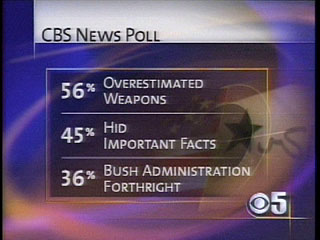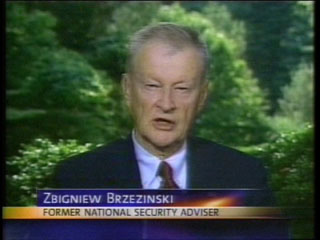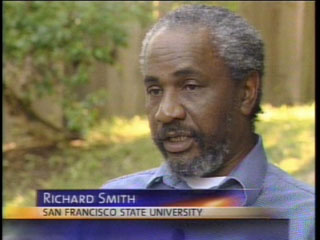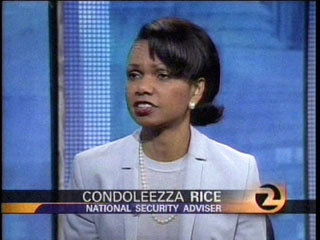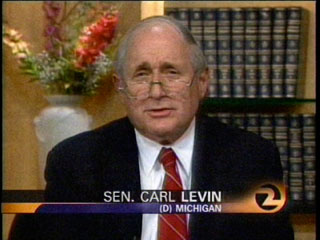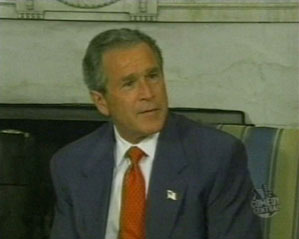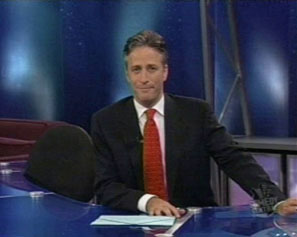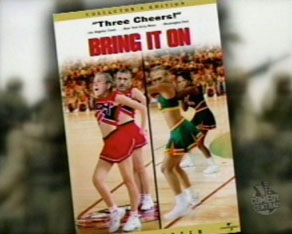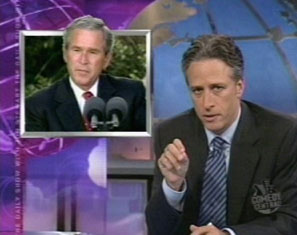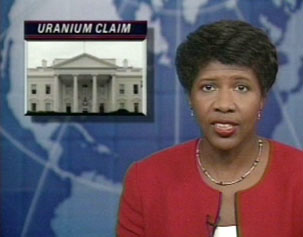White House Didn’t Gain CIA Nod for Claim On Iraqi Strikes — Gist Was Hussein Could Launch in 45 Minutes
President Bush said twice in September that Saddam Hussein could launch a biological or chemical attack within 45 minutes.
By Dana Milbank for the Washington Post. (Staff writer Walter Pincus contributed to this report.)
The White House, in the run-up to war in Iraq, did not seek CIA approval before charging that Saddam Hussein could launch a biological or chemical attack within 45 minutes, administration officials now say.
The claim, which has since been discredited, was made twice by President Bush, in a September Rose Garden appearance after meeting with lawmakers and in a Saturday radio address the same week. Bush attributed the claim to the British government, but in a “Global Message” issued Sept. 26 and still on the White House Web site, the White House claimed, without attribution, that Iraq “could launch a biological or chemical attack 45 minutes after the order is given.”
The 45-minute claim is at the center of a scandal in Britain that led to the apparent suicide on Friday of a British weapons scientist who had questioned the government’s use of the allegation. The scientist, David Kelly, was being investigated by the British parliament as the suspected source of a BBC report that the 45-minute claim was added to Britain’s public “dossier” on Iraq in September at the insistence of an aide to Prime Minister Tony Blair — and against the wishes of British intelligence, which said the charge was from a single source and was considered unreliable.
The White House embraced the claim, from a British dossier on Iraq, at the same time it began to promote the dossier’s disputed claim that Iraq sought uranium in Africa…
Virtually all of the focus on whether Bush exaggerated intelligence about Iraq’s weapons ambitions has been on the credibility of a claim he made in the Jan. 28 State of the Union address about efforts to buy uranium in Africa. But an examination of other presidential remarks, which received little if any scrutiny by intelligence agencies, indicates Bush made more broad accusations on other intelligence matters related to Iraq.
For example, the same Rose Garden speech and Sept. 28 radio address that mentioned the 45-minute accusation also included blunt assertions by Bush that “there are al Qaeda terrorists inside Iraq.” This claim was highly disputed among intelligence experts; a group called Ansar al-Islam in Kurdish-controlled northern Iraq and Jordanian Abu Musab Zarqawi, who could have been in Iraq, were both believed to have al Qaeda contacts but were not themselves part of al Qaeda.
Bush was more qualified in his major Oct. 7 speech in Cincinnati, mentioning al Qaeda members who got training and medical treatment from Iraq. The State of the Union address was also more hedged about whether al Qaeda members were in Iraq, saying “Saddam Hussein aids and protects terrorists, including members of al Qaeda…”
The 45-minute accusation is particularly noteworthy because of the furor it has caused in Britain, where the charge originated. A parliamentary inquiry determined earlier this month that the claim “did not warrant the prominence given to it in the dossier, because it was based on intelligence from a single, uncorroborated source.” The inquiry also concluded that “allegations of politically inspired meddling cannot credibly be established.”
As it turns out, the 45-minute charge was not true; though forbidden weapons may yet be found in Iraq, an adviser to the Bush administration on arms issues said last week that such weapons were not ready to be used on short notice…
The White House use of the 45-minute charge is another indication of its determination to build a case against Hussein even without the participation of U.S. intelligence services. The controversy over the administration’s use of intelligence has largely focused on claims made about the Iraqi nuclear program, particularly attempts to buy uranium in Africa. But the accusation that Iraq could launch a chemical or biological attack on a moment’s notice was significant because it added urgency to the administration’s argument that Hussein had to be dealt with quickly.
Staff writer Walter Pincus contributed to this report.

